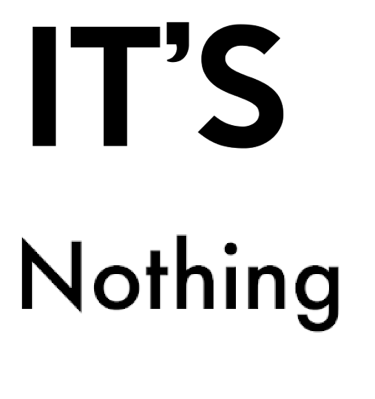Oh, It’s Nothing –
By Rabbi Jonathan Gewirtz, The Observant Jew
There’s an interesting culture to words and phrases. For example, in English, when someone says, “Thank you,” the correct response is, “You’re welcome.” Once, when R’ Mordechai Gifter z”l said “Thank you,” to me, I said, “My pleasure!” He told me that was a very “American” response. I didn’t know exactly what he meant but I figured that in America people are very outgoing and generous so they imply that they got benefit from doing whatever it was for the other person.
Saying “Toda” in Hebrew usually warrants a “B’vakasha,” which means, “Please,” or perhaps, “with pleasure.” It’s kind of similar. In Yiddish, however, the response is, “Nit doh fahrvoss.” Roughly translated it means, “There’s no reason to thank me.”
In other words, “It was nothing.”
The idea here is to make the person who feels beholden to you for having received a favor less uncomfortable. By downplaying the kindness, you limit the amount of appreciation they have to have and it’s somewhat a gift to them, like giving a good customer a discount.
I’m not sure I like that idea, because people should recognize that whatever was done for them is something to appreciate. The person who did it may be kind and not demand proper thanks, but that doesn’t obviate the need to actually be grateful.
This concept is found in the Torah. When Rivka gave Eliezer water at the well, for him and all his camels, he didn’t give her the gifts of jewelry right away. Says the Sforno, he waited to see if she was doing it out of her trait of chesed, or if she would want to be paid. It turned out that she didn’t want any payment, and was happy to do a kindness, but that did not release Eliezer from his obligation to be grateful.
There’s another time, though, when people say, “It was nothing” that I think we really underestimate.
Have you ever been scolding your child and he mumbled something under his breath? “What did you say?!” we demand. And he replies, “Nothing.”
That’s not good enough. We push the issue. “I know you said something. Tell me what it was right now or you’ll REALLY get in trouble!” Now let’s pause a moment – do we really think this is a good idea? Do we really want to hear what the kid said? Will it make us calmer? I don’t think so.
But our curiosity gets the better of us and we feel we need to know just how far he was pushing things and just how annoyed we should be. So we push. If he tells us, we get upset. If he doesn’t, we get upset. What we’re missing here is the gift he’s just given us.
You see, just like when we thank someone and they say, “It was nothing,” meaning that we don’t need to be concerned with the trouble they actually went through on our behalf, when the kid says, “Nothing,” it’s a recognition and a choice to give up on having what he said heard because he recognizes that he said it in anger and it won’t make anyone happier.
It’s actually a remarkable feat of self-control, not just self-preservation. In fact, even if it is self-preservation, we should be proud of him for correcting himself and we should consider that he truly said, “nothing” and move on.
Fights are often fueled and feelings often hurt by words that should not have been spoken. They may or may not have been meant, but usually their intent was to hurt in a moment of frustration or anger. A person lashed out and said something. If we could find a way to tell ourselves, “It was nothing,” even if the other party doesn’t take them back, we could avoid long-standing feuds and end arguments sooner. Not only that, but we’d be happier people.
It isn’t easy to do, but if we can train ourselves to recognize Sinas Chinam, meaning ill will for silly reasons, that doesn’t actually reflect on us at all or resemble the truth of the matter, we can give people the opportunity to make amends faster.
Just as saying, “It was nothing,” to a beneficiary of our kindness is letting them off the hook to be an equal peer and save face, letting them get away with telling you they said, “nothing,” does the same thing. Not only that, it can save the relationship.
I heard a truly insightful story from R’ Simcha Bunim Berger about a Rosh Yeshiva who heard that some boys were going out on Thursday nights to some places that weren’t terrible, but that they wouldn’t have gone with their Rebbeim.
Someone alerted him to the goings-on but he said, “I’m not going to say anything. They’re good boys, they’ll turn out alright. However, if they thought I knew what they were doing they’d be embarrassed. It’s better that they think they’re fooling me and they won’t have reason to avoid me. Then I can continue to be a proper influence on them.”
I guess the bottom line is that saying, “It’s nothing,” is really something.
© 2018 – All Rights Reserved
Did you enjoy this column? Feedback is welcome and appreciated. E-mail info@JewishSpeechWriter.com to share your thoughts. You never know when you may be the lamp that enlightens someone else.
